googleio2019
Latest
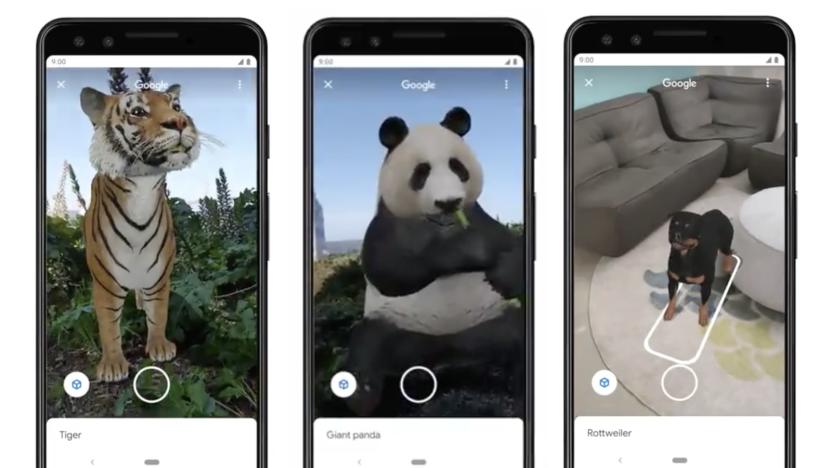
Google puts augmented reality animals in its Search app
If you Google certain animals, you might just come across an augmented reality surprise in your results. The tech giant has rolled out a new card for Search that can put animal virtual animals in the real world, so long as you have an AR-enabled phone. According to 9to5Google, the trick works for alpine goats, angler fish, bears, emperor penguins, European hedgehogs, lions, tigers and timberwolves. We can confirm that it also works with dogs and cats. When you do a search on any of them, you'll see a card that says "Meet a life-sized [animal] up close."

How Android Q supports 5G apps and why you should care
When Francesco Grilli and his peers were working on the 4G standard, they had a few ideas as to what the popular use cases might be. Video calls over the internet, perhaps, or rich messaging content, they thought. "In the end, none of that really happened on a larger scale," Grilli said. "Other stuff we were thinking about didn't materialize." As vice president of product management at Qualcomm Technologies, Grilli's job largely revolves around imagining how people would use advanced networks.

The new Android Q beta is a mostly cosmetic update
The Android Q beta 3 is here, and like the first public beta of this OS, there's not much to get excited about. This beta doesn't offer the meatiest update, but it is our first look at some of the user-facing features coming to Android Q. Things like Dark Mode and full gesture navigation are here, but more exciting highlights like Live Caption and Focus Mode are both missing. You can try the beta yourself if you're not afraid of potentially buggy software, and if you own one of the 21 handsets that will work with it. That's double the number of devices that supported the beta last year.
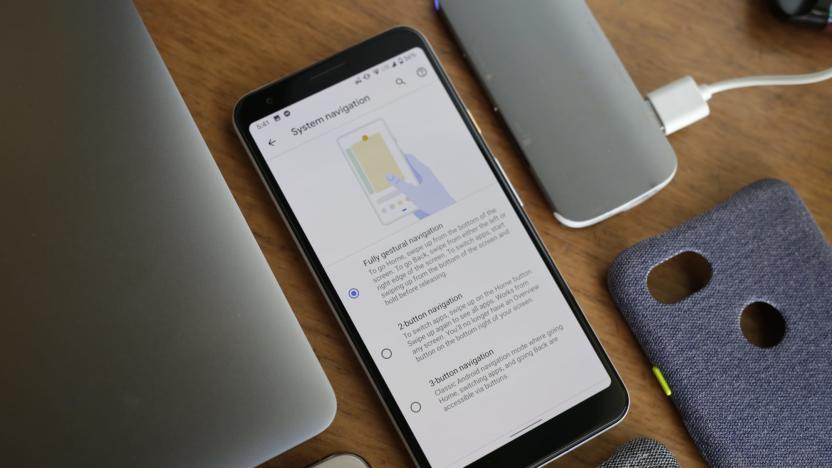
With Android Q, Google is pushing for more elegant, standardized gestures
At last year's developer conference, Google gave us our first taste of Android Pie's gesture-based navigation system. It was, uh, pretty rough: the classic, three-button navigation scheme was replaced with a back button, a "pill" and a handful of swipe gestures that, to me at least, never felt particularly elegant or natural. Thankfully, Allen Huang, Google's product manager for Android's system interface, explained it was always meant to be a transitional step and never meant for it to last "in its current form" for more than a year.
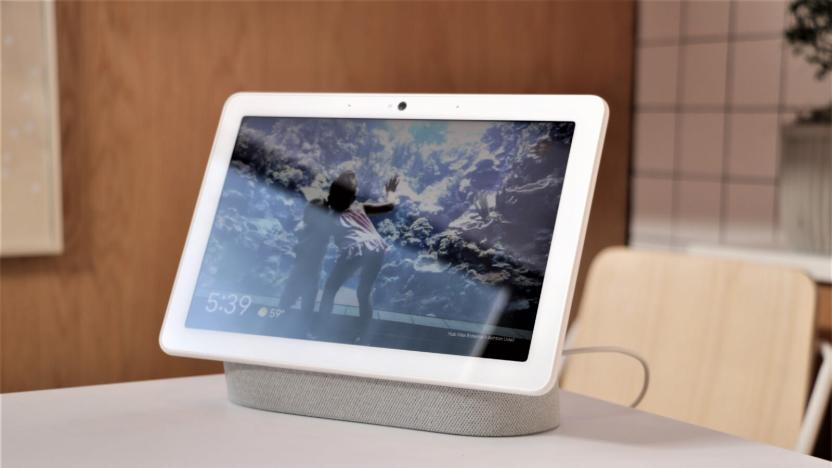
Google Nest could rule the smart home, if it can get privacy right
This week, Google rebranded its Home products as Nest, finally bringing the company's smart home products under one umbrella. Going forward, all of Google's connected home products will have the Nest brand, starting with the new Nest Hub Max. Even last year's Home Hub will be renamed Nest Hub (The original Home and Home Mini speakers will remain as is). It's a smart move, and could give Google a leg up over Amazon and Alexa. Yet, Google needs to tread carefully, as its smart home push could also test the ever-growing privacy concerns of a wary public.

Google improved Android Auto by making it act more like your phone
Every year, Android gets a chance to reinvent itself on smartphones with new features and new design flourishes. The same can't be said of Android Auto, Google's phone-powered in-car interface: It's tremendously helpful for drivers, and its feature set has grown over the years, but the UI hasn't changed since it debuted in 2014.
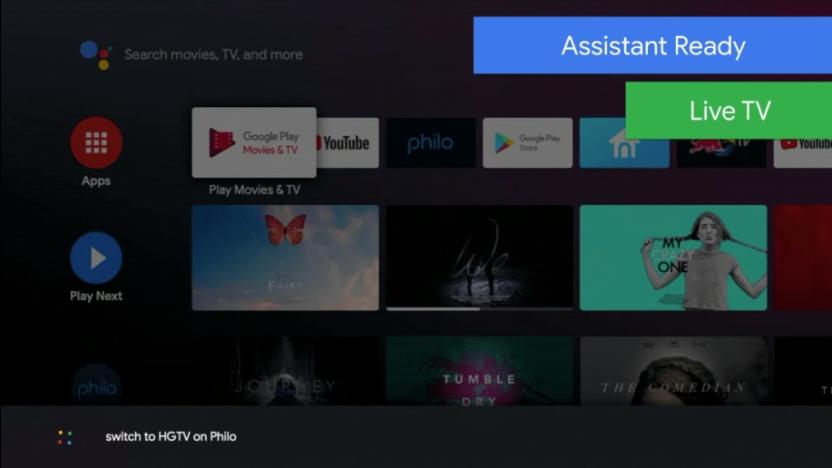
Android TV will benefit once Assistant is linked to live TV guide data
Remember Android TV? Google does, and not just so it can throw some unexpected advertisements on it. During the opening day of I/O 2019, Google revealed that over 80 percent of Android TV devices are already running version 7 or higher, and the company expects to have more that 60 percent on 8+ / Oreo by the end of the year -- even if it didn't discuss any upgrades on the way to software based on P or even Q. It's also counting over 1,000 streaming content providers on the platform these days, with more than 5,000 compatible apps.

Watch Google's I/O 2019 keynote in 13 minutes
To say that Google had a busy I/O keynote would be an understatement. There were new Pixel phones and a Nest smart display, but those were really just the start. Google also had an avalanche of AI and software updates, including a next-gen Assistant, AR search and of course Android Q. That's a lot to digest, but don't fret about catching up. We've assembled the highlights of the keynote in a 13-minute clip that will get you up to speed on Google's many plans.

Yes, Google is working on foldable phone prototypes too
In interviews leading up to this week's Google I/O event, the head of Google's Pixel division faced questions about foldable devices. Talking to CNET, Mario Quieroz acknowledged "We're definitely prototyping the technology. We've been doing it for a long time." Google's announcement last fall that Android would natively support foldable phones should've shown that it's at least considering the technology, however the question of when, or if, it should offer a product is hard to answer. Talking to Business Insider, the exec said that the technology will be important, but Google doesn't have anything to announce right now. For Samsung, jumping out of the gate with its Galaxy Fold has a number of potential benefits, since if the segment becomes popular it can license the underlying hardware technology to others. For Google, it makes more sense to wait and see if anyone can actually build a working device before investing heavily in something it's not sure people will want at the current price. That's why it's unveiling the midrange Pixel 3a this week instead of a $2,000 device that might not last an entire week.
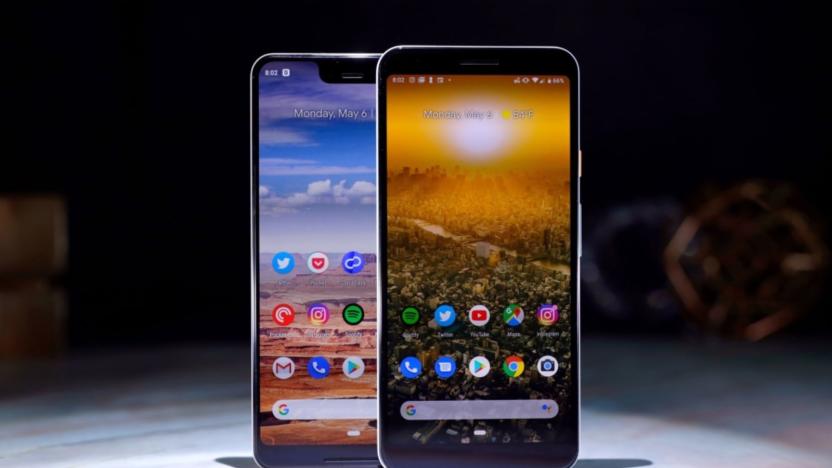
Google shows Apple and Samsung how ‘lite’ flagships are done
In recent years, the price of flagship phones has skyrocketed. What used to cost about $700 now goes for $1,000, albeit with more advanced features packed in. At the time of this writing, the iPhone XS starts at $999, the Galaxy S10 is $900, and the Note 9 costs $1,000. The existing Pixel 3 might be a bit cheaper at $799, but the larger 3 XL starts at $899.
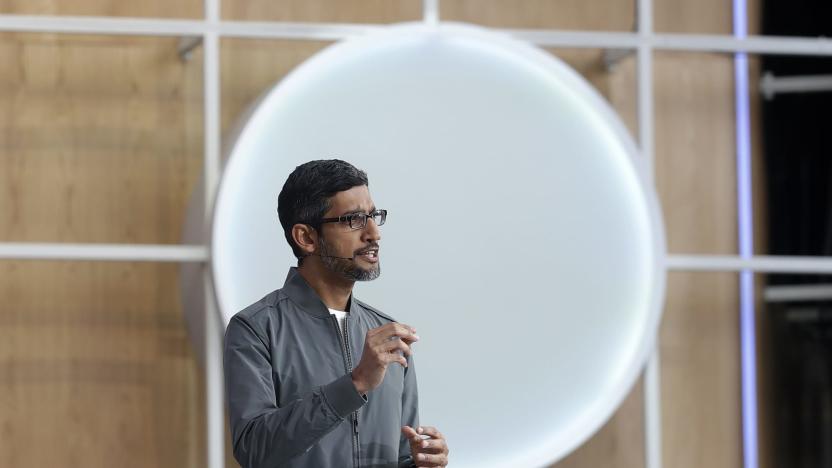
Here's all the important stuff Google announced at I/O 2019
A better, faster, stronger Google is in store for 2019. During its I/O developer conference on Tuesday, the company unveiled dozens of updates to every corner of the Google ecosystem; from search and Google Assistant to the next generation of Android. In the keynote, Google CEO Sundar Pinchai said the company's mission is shifting from a company that "helps you find answers" to one that "helps you get things done." Whether it's hailing a Lyft, translating foreign languages or transcribing video in real-time, the theme today was how Google can help users perform more tasks than ever before.

Google I/O 2019 by the numbers
In addition to its new Pixel 3 and Nest Hub Max, Google revealed a host of recent advancements in the field of Artificial Intelligence. The Assistant is getting a significant speed boost -- not just because you no longer have to say "Hey Google" -- thanks to onboard algorithmic models, Duplex is coming to Chrome, search will soon have AR capabilities, and the upcoming Android Q will host even more smart features. Here are the highlights of Google I/O 2019:
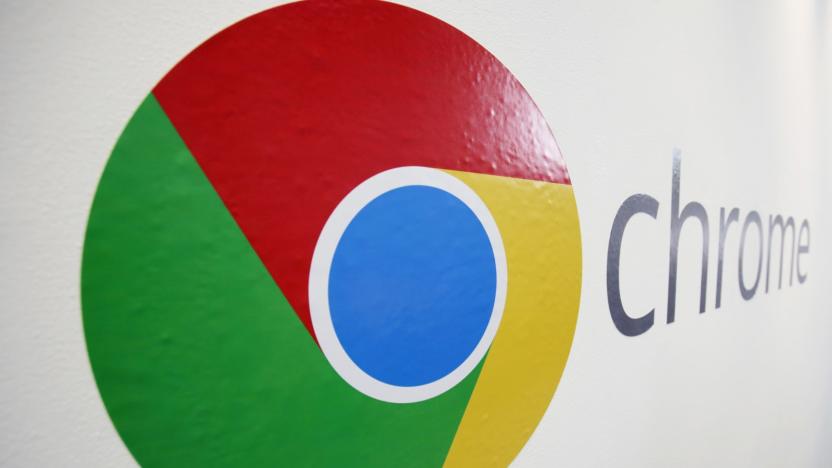
Chrome will let you block cross-site tracking
The rumors were true -- Google plans to let you block cross-site tracking in Chrome. The search firm has unveiled efforts to improve its cookie controls by distinguishing between single- and multi-site cookies, giving you the option to delete trackers without losing the cookies you use for logins and other important tasks. To make that work, Google will ask web developers to specify which cookies work across sites -- if they don't, Chrome won't play nicely.

Google is making it easier to build Android apps on a Chromebook
At I/O last year, Google announced it was adding Linux support to Chrome OS, a move that made it a lot easier for web and Android developers to use Chromebooks. One year later, the company says that more than half of all Chromebooks now work with Linux, and all new devices released this year will support Linux as well. And today, Google has a handful of developer-focused updates that'll make building Android apps on Chrome OS a good bit easier.
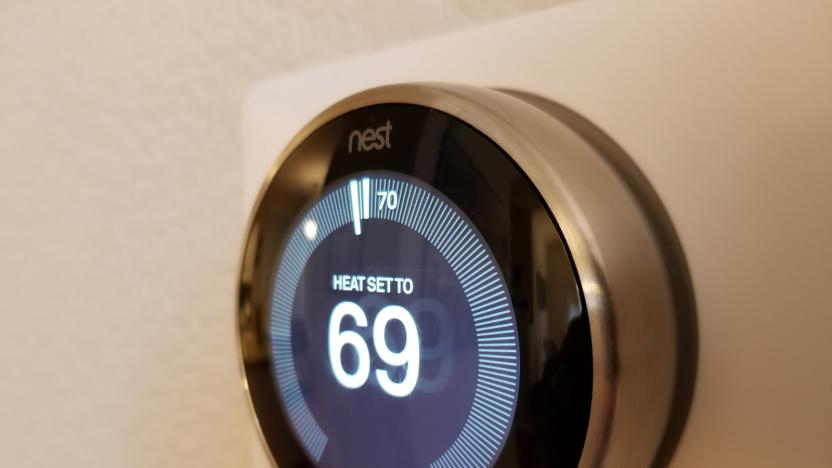
The end of Works With Nest could be trouble for smart homes
Google's integration of the Nest brand may have some downsides for smart home enthusiasts. The company has revealed that it's phasing out its Works With Nest program in the summer in favor of a Works With Google Assistant framework. The new program will allow data sharing between connected devices and apps, but only for a handful of tightly screened partners, Google's Rishi Chandra told Variety. While that's potentially helpful for security and privacy, it's also likely to break a number of smart home tie-ins -- including some you may miss.

Google Assistant can tell apps to order food or track your run
Google Assistant's Actions are about to become decidedly more useful in daily life. Google has expanded App Actions' reach to offer shortcuts for health, finance, food and ridesharing. You could tell your fitness app to start tracking a run, pay a friend for last night's dinner or order your favorite tacos without having to wade through their respective apps first.

The Pixel 3a XL vs. the competition: Surprisingly capable
It used to be that if you wanted flagship level-specs and a large screen at a lower price, your only option was a OnePlus phone like the 6T. But now you have another option: Today Google announced the Pixel 3a XL. It makes some sacrifices in processing power, but it still delivers a great camera and decent screen. And it has a headphone jack! To see how the specs stand up to the 6T, as well as the more expensive Galaxy S10+ and iPhone XS Max, check out our table below. And, if you want the full scoop on this new budget handset, check out our full review.
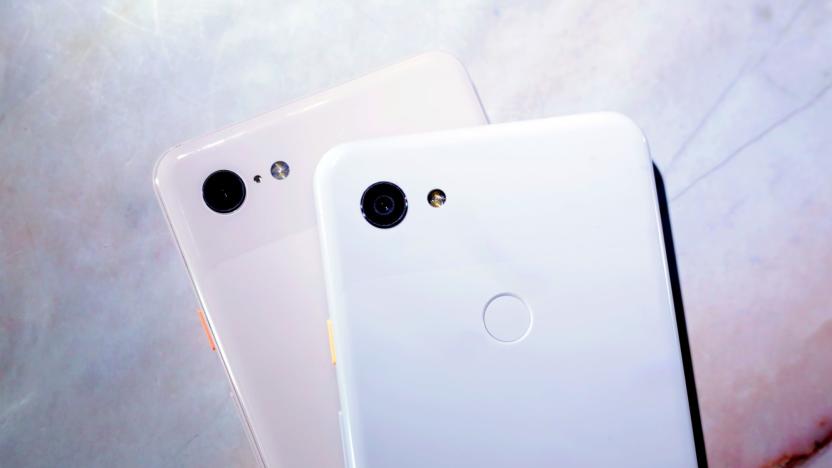
The Pixel 3a vs. the Pixel 3 and Pixel 2: What's changed?
It's only May but we're already getting new a Pixel phone, just in time for Google I/O. But this release isn't a full-fledged Pixel 4, which we'll probably see this October. Instead, it's the 3a, a slightly stepped down version of Google's flagship with a discounted price to match. How stepped down is it, exactly? We've lined up all the important details about both the 3 and 3a as well as 2017's Pixel 2 to see what corners got cut. However, to see if it's really worth your time and money, we recommend giving our review of its larger sibling a peep.
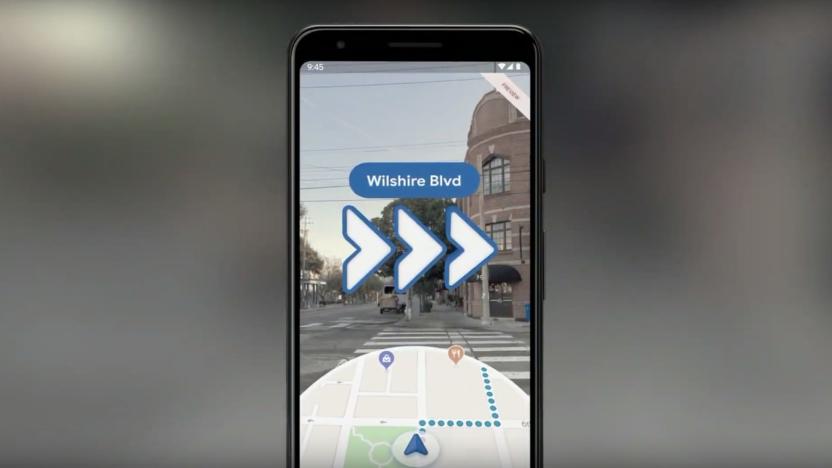
Google Maps' AR walking directions arrive on Pixel devices today
After first showing off augmented reality directions last year, Google is finally starting to roll out the feature for Google Maps. Starting today, Pixel device owners will be able to view walking directions in AR, with arrows appearing in real world environments to show them which direction to go. The company called the feature an "early preview" at Google I/O and didn't provide any details as to when it will arrive on other devices.
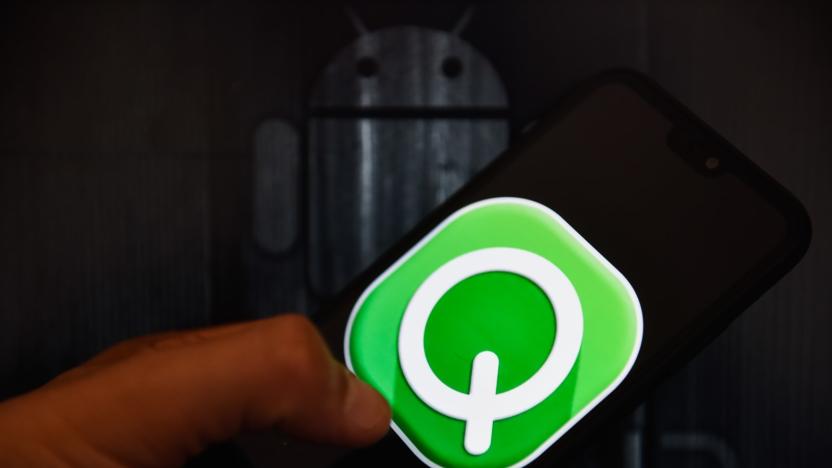
Google is using the Play Store to speed up Android security updates
Google is planning to push out some security updates directly through its Play Store, a feature that will be part of Android Q. As The Verge reports, Google is calling this "Project Mainline," with the goal being to deliver important updates to your smartphone in a more timely manner. It's worth noting that these updates will be focused on security, as Google can't update your entire phone in this way. According to The Verge, at launch Project Mainline is going to be update 12 different "modules," such as media components. In practice, this will allow Google to patch bugs or flaws in the same way it can, say, update one of its first-party apps -- like Chrome or Play Music.











